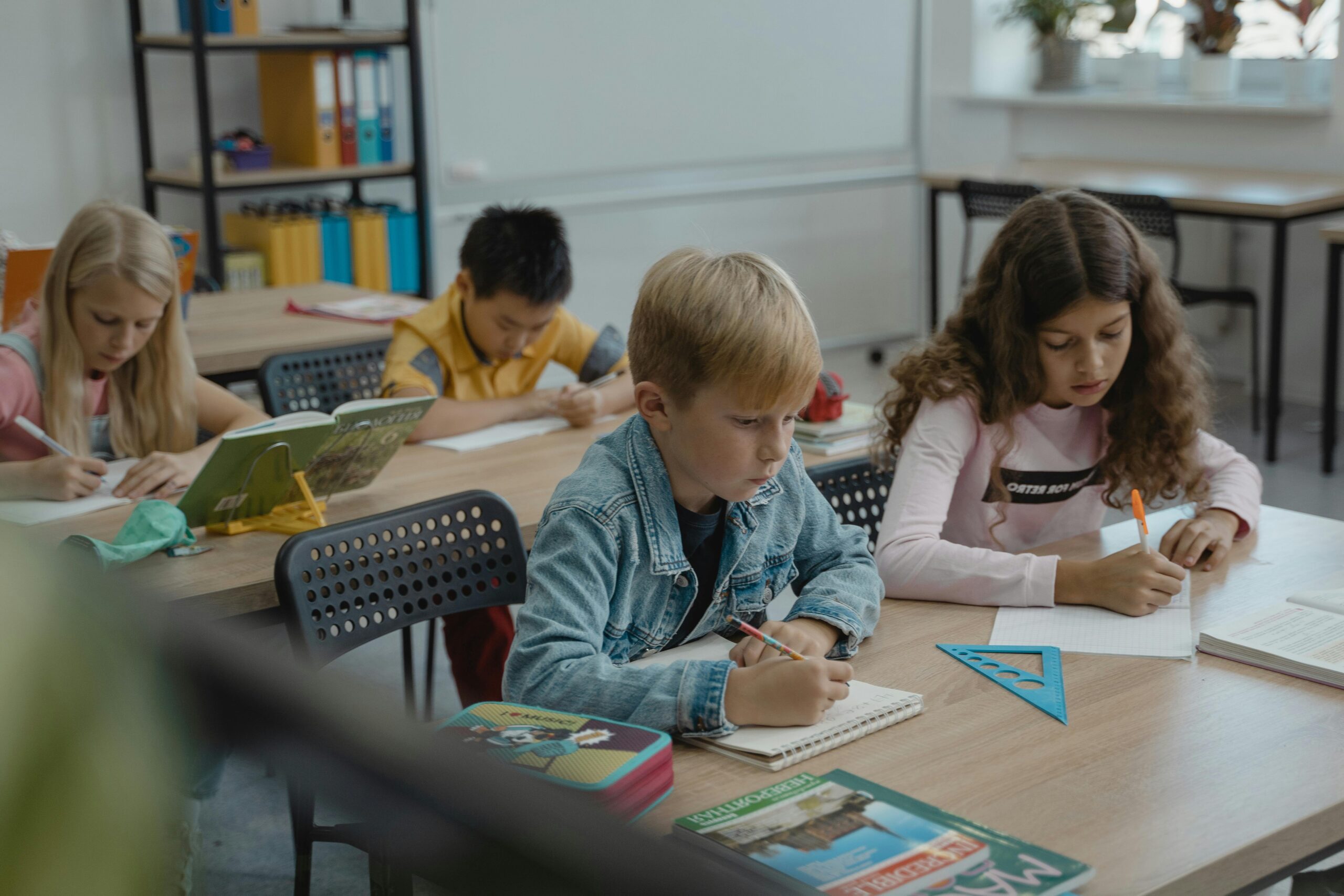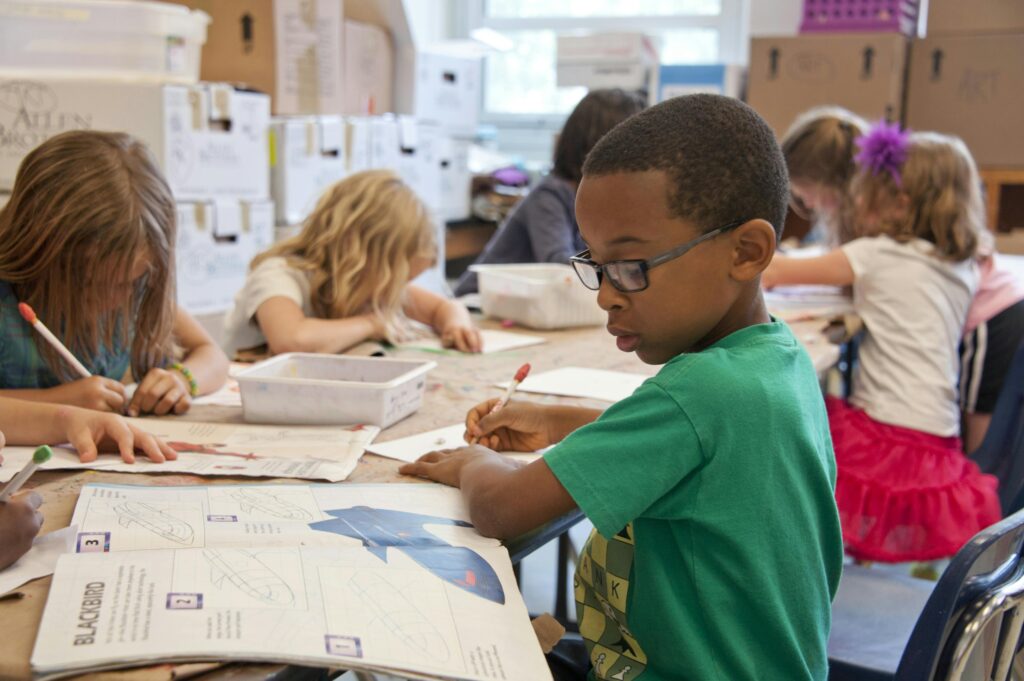Nina's Blog
Boost Your Child’s Focus: 8 Fun Activities

Ever notice how your child can stay glued to a video game or favorite TV show, but the second homework hits the table, their focus seems to float away? Building concentration in kids, especially younger ones, can be a real challenge, but it’s not impossible. In fact, there are fun, effective ways to help your child strengthen this crucial life skill.
Here are eight activities designed to improve your child’s focus—and keep it fun!
1. Spot the Difference
Who doesn’t love a classic “Spot the Difference” game? It’s more than just a fun distraction; it’s an exercise in attention to detail and patience. This game asks kids to find tiny variations between two nearly identical pictures. Not only does it sharpen focus, but it also builds observational skills that can carry over into school tasks. Plus, you can find endless versions of this game online or in activity books, making it perfect for travel or waiting rooms.
How to Play:
Pick a game or book where they have to spot the difference or find hidden objects (like a hidden panda).
Set a time challenge to add a bit of excitement!
Why It Works: By focusing on tiny details, kids learn to look carefully and concentrate for extended periods, which helps build mental endurance.
2. Copying Pictures
Sometimes, the simplest activities are the most effective. Copying a picture from one page to another teaches kids the value of slowing down and focusing on accuracy. Start with something easy, like a picture from a coloring book, and watch their focus grow!
How to Play:
Give them a picture to copy onto blank paper.
Start with short intervals, like 30 seconds, to build endurance.
Shake it up (literally)! Give their arms a good shake between rounds to release tension and avoid restlessness.
Why It Works: Copying pictures helps kids concentrate on one task, improves fine motor skills, and teaches them how to stay on track—an invaluable skill for longer study sessions.
3. Counting Backwards
Counting is easy enough, but counting backwards? Especially by twos or threes? This activity requires kids to engage their brains actively, and it can be trickier than it sounds.
How to Play:
Start with a number like 161 and ask them to count backwards by threes.
Challenge them with bigger numbers or different patterns as they get better.
Why It Works: This exercise boosts mental math skills and requires intense focus, as kids must pay close attention to avoid losing track.
4. Dancing Games
For the kid who just can’t sit still, dance games on consoles like Xbox or interactive apps can work wonders. These games demand focus, coordination, and quick reactions—perfect for a child with a lot of energy.
How to Play:
Let them follow a dance sequence from a game or app.
Try to get through a song without missing a beat and challenge them to hit new high scores!
Why It Works: Dancing games allow kids to channel their energy productively, improve motor skills, and boost processing speed—all while having a blast.
5. Kim’s Game
Kim’s Game is an old-school memory and focus game that’s still a hit with kids. It combines short-term memory and attention to detail, and it’s super easy to set up.
How to Play:
Place ten random household items on a tray or the floor.
Give them 30 seconds to memorize everything, then cover it.
Have them recall as many items as they can remember. Want more of a challenge? Take one item away while they’re not looking and ask them to identify what’s missing.
Why It Works: This game hones memory, sharpens observation skills, and teaches kids to concentrate on small details—all essential for effective studying.
6. Mindful Coloring
Mindful coloring is not just a trend for adults; it’s a fantastic concentration-building exercise for kids. With a few shapes, crayons, and some quiet time, kids can focus on staying within the lines and creating patterns.
How to Play:
Start with small shapes or circles and ask them to color within the lines.
Gradually increase the size and complexity of the shapes as their focus improves.
Why It Works: Coloring requires kids to stay focused on a single task, calm their minds, and practice patience—all foundational skills for strong concentration.

7. The Memory Game
A perfect group activity, this memory game doubles as a focus and memory builder while also bringing lots of laughs! Here’s how it works: everyone sits in a circle and takes turns listing things they bought at the supermarket. The catch? Each person has to remember and repeat what the previous players said, adding a new item each time.
How to Play:
Start with “I went to the supermarket and bought… an apple.”
The next person has to say, “I went to the supermarket and bought an apple and a banana.”
Keep adding items until someone forgets the order—then, start again with a new list!
Why It Works: Remembering a sequence of items requires kids to actively listen, focus, and strengthen their short-term memory—all critical for academic success.
8. Counting Words
Counting the words in a paragraph may sound simple, but it’s actually a powerful concentration exercise for young kids. They’ll need to stay focused to count correctly, helping them improve accuracy and patience.
How to Play:
Choose a short paragraph and ask them to count each word.
After they’re done, ask them to count again to see if they get the same result.
If they succeed, move on to a longer paragraph to keep challenging their attention.
Why It Works: This game forces kids to slow down and pay close attention. It’s perfect for improving accuracy and detail-oriented focus, which are essential in schoolwork.
Building Concentration as a Skill
Concentration isn’t just something kids either have or don’t have; it’s a skill they can learn and improve with practice. By making these activities a regular part of their routine, your child can develop stronger focus and attention, preparing them for school, social interactions, and future challenges.
Try incorporating one or two of these activities each week. Keep it light, keep it fun, and watch as their ability to concentrate grows.
Want more Blogs? Click HERE
Comments will load here
Be the first to comment